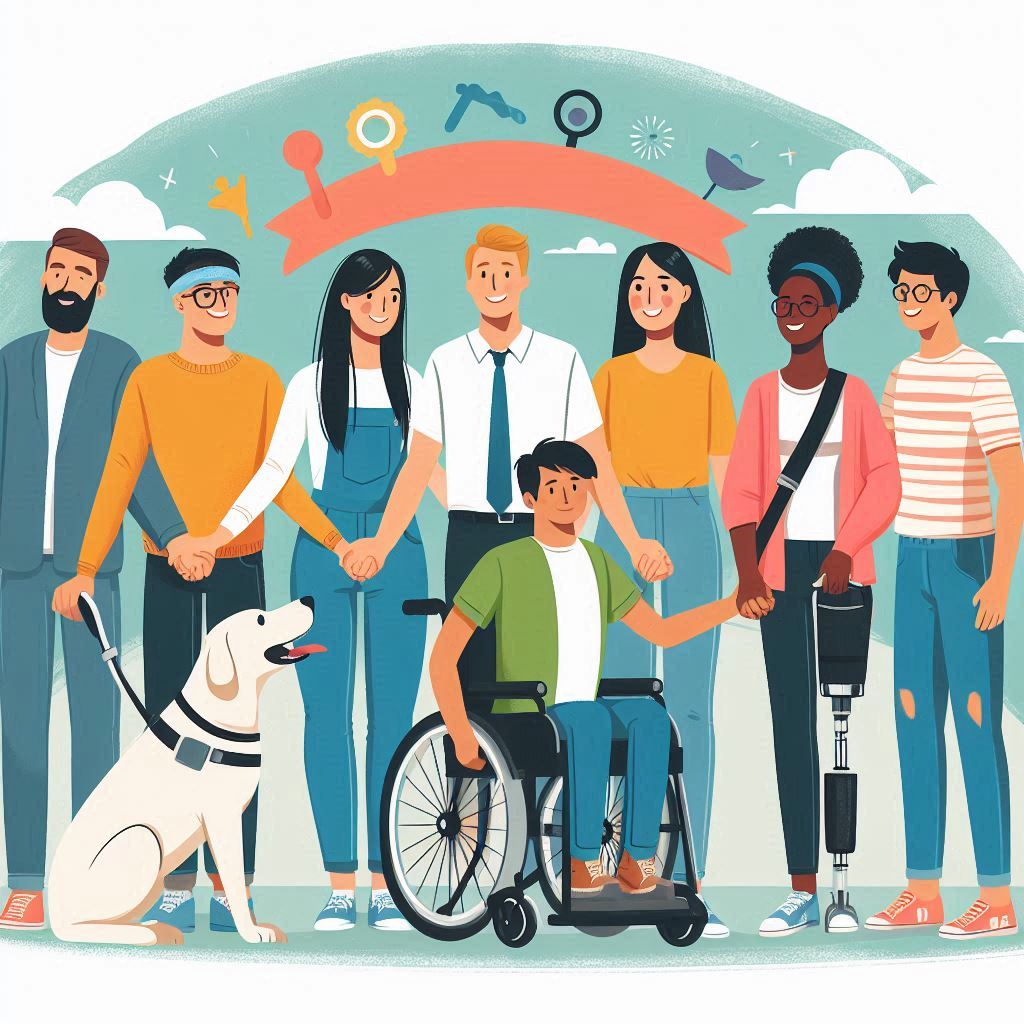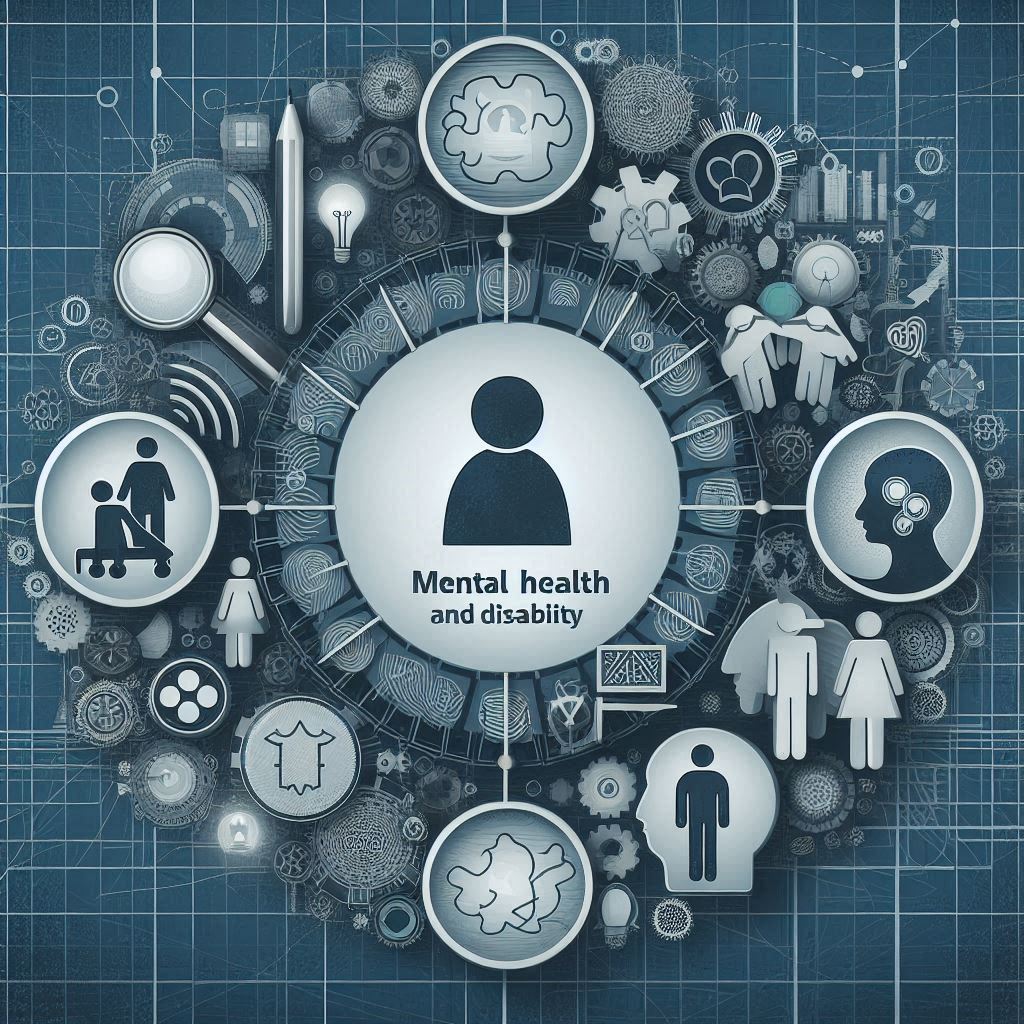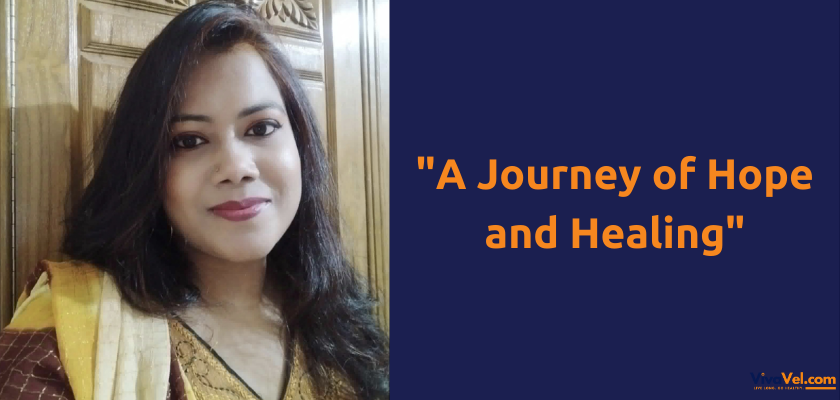
Home / Information / Blog / Blog Detail

Every year on December 3rd, the world meets to observe World Disability Day, also known as the International Day of Persons with Disabilities (IDPD). This day is a global reminder of the resilience and potential of individuals with disabilities while highlighting the importance of creating inclusive, accessible, and equitable societies.
The theme for 2024, “Empowering Inclusion: A Future Without Limits,” emphasizes breaking down societal and structural barriers that hinder the full participation of people with disabilities.
Why Celebrate World Disability Day?
Globally, over 1 billion people live with some form of disability, making them the largest minority group. Despite this significant representation, they often face social, economic, and institutional challenges, ranging from inaccessible infrastructure to discriminatory attitudes. Observing World Disability Day aims to:
Raise Awareness: Educate the public about the rights and abilities of people with disabilities.
Advocate for Inclusion: Push for policy changes that guarantee accessibility and equality.
Foster Empathy and Understanding: Challenge stereotypes and create a more supportive society.
Milestones in Disability Rights:
Significant milestones have marked the journey toward disability inclusion:
UN Convention on the Rights of Persons with Disabilities (2006): A landmark agreement ensuring the rights and dignity of individuals with disabilities.
Accessible India Campaign (2015): This initiative promotes barrier-free access to public buildings and transport in India.
The Disability Discrimination Act (1995): This legislation prohibits discrimination and mandates reasonable adjustments for accessibility in the UK.
Challenges Persist
Despite progress, challenges remain. For instance:
Employment: Globally, the employment rate for persons with disabilities is significantly lower than for those without disabilities.
Education: Limited access to inclusive education hinders their development, especially in low-income countries.
Healthcare: People with disabilities often face more significant barriers in accessing affordable healthcare services.
How Can You Contribute?
Whether as individuals, organizations, or governments, everyone can play a role in creating an inclusive world:
Support Accessibility: Advocate for universal design in buildings, transportation, and technology.
Promote Awareness: Organize workshops and campaigns to educate communities about disability rights.
Engage in Advocacy: Collaborate with NGOs and policymakers to ensure inclusive legislation.
Celebrate Diversity: Employ people with disabilities, value their contributions, and respect their individuality.


Every year on December 3rd, the world meets to observe World Disability Day, also known as the International Day of Persons with Disabilities (IDPD). This day is a global reminder of the resilience and potential of individuals with disabilities while highlighting the importance of creating inclusive, accessible, and equitable societies.
The theme for 2024, “Empowering Inclusion: A Future Without Limits,” emphasizes breaking down societal and structural barriers that hinder the full participation of people with disabilities.

Understanding Mental Health
Mental health is a person’s overall emotional, psychological, and social well-being. It influences how individuals think, feel, and interact with others and how they handle stress and make decisions. Good mental health enables individuals to cope with life’s challenges, build meaningful relationships, and contribute productively to their communities.
Mental health conditions, however, disrupt this balance. Conditions such as anxiety, depression, bipolar disorder, and schizophrenia can impair functioning, relationships, and quality of life. They may manifest through persistent sadness, excessive fear, erratic mood swings, or distorted perceptions. These conditions often stem from genetic, biological, environmental, and psychological factors.
Defining Disability
Disability is an umbrella term encompassing impairments that may be physical, sensory, cognitive, intellectual, or mental. Disabilities vary widely in origin, severity, and impact. They may be congenital (present from birth) or acquired due to illness, injury, or the natural aging process. Examples include vision or hearing loss, mobility issues, developmental disorders like autism, and chronic health conditions such as multiple sclerosis.
The social model of disability emphasizes that societal barriers, rather than impairments alone, create disability. For instance, lack of wheelchair access in public spaces or limited availability of sign language interpreters hinders participation more than the impairment itself.

The overlap between mental health and disability highlights a complex interplay where mental health conditions can qualify as disabilities under frameworks like the CRPD, particularly when they significantly impair daily functioning. Conversely, individuals with physical or sensory disabilities often face heightened risks of mental health challenges due to stigma, isolation, or accessibility barriers.
STEP 1
Let us know your details and preferences. We maintain absolute data confidentiality. All your health records are safe, and privacy is maintained.
STEP 2
A dedicated counsellor will help you with the Best Hospital & Doctors at the lowest possible Prices.
STEP 3
While you decide on the treatment plan, we assist you with priority appointments, Visa, Documentation, Hotel & other Logistics.
STEP 4
Our team assists you with all your local requirements like Hospitalization, Hotel Stay, Transportation, Food, Forex, Lab Tests, Medicines, etc.
STEP 5
We ensure a smooth discharge process. We also assist you in tallying your bills at the hospital, all necessary documentation, and your return trip.
Happy Patient from Bangladesh | Gastroenteritis Treatment in Columbia Asia Hospital, India

"VivaVel" has truly made a life-changing impact on our lives during a challenging time. My wife was diagnosed with Polycystic Ovarian Disease (PCOD), and despite consulting three different doctors in Bangladesh, we were unsatisfied and uncertain about the way forward. It was a confusing and challenging phase until a friend recommended VivaVel.
From the moment "I contacted them", VivaVel provided exceptional support and guidance. They arranged telemedicine consultations with two renowned international doctors, giving us the confidence to make an informed decision. After careful consideration, we selected one of the doctors for my wife's treatment.
VivaVel's assistance went above and beyond our expectations. They helped us with critical processes like obtaining a medical visa invitation letter, visa processing, and coordinating my wife's admission to "Artemis Hospital" in Delhi. They even suggested comfortable accommodations for me as a patient attendant.
What truly stood out was their unwavering support throughout our journey. The "VivaVel team" was always just a phone call away, offering guidance and reassurance during our stay in Delhi. Their professionalism and dedication to helping patients and their families are truly commendable.
I am incredibly grateful for the care and support from "VivaVel." They were a beacon of hope for us during this difficult time, and I sincerely hope they continue their outstanding service to help more needy patients.
Thank you, "VivaVel," for being there for us every step of the way!
Mr. Hoque, Dhaka, Bangladesh
Patient name: Shanta Islam, Dhaka, Bangladesh.

Note : VivaVel does not provide medical advice, diagnosis or treatment. The services and information offered on www.vivavel.com are intended solely for informational purposes and cannot replace the professional consultation or treatment by a physician. All Copyrights are reserved with VivaVel. VivaVel does not allow copying and cloning of its webpages and contents. VivaVel reserves the right to follow the legal procedures to protect its intellectual property.
Copyright © 2025 VivaVel.com . All Rights Reserve.





